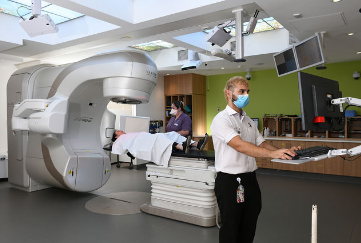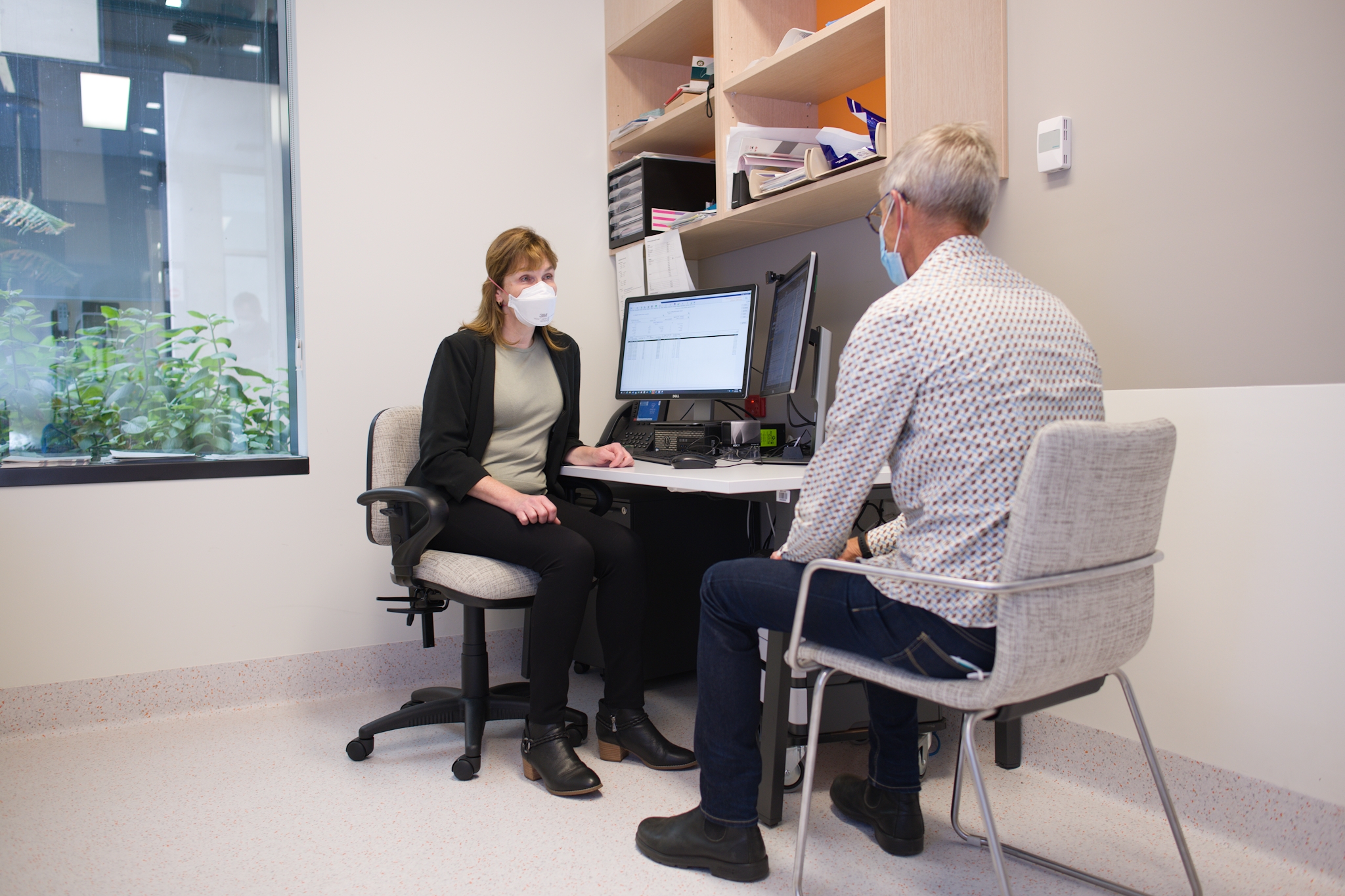This page provides information about other types of treatment for CUP, which are radiotherapy and surgery. Each section explains the process, the benefits and potential side effects.

Radiation therapy, also known as radiotherapy, uses targeted radiation, in the form of x-ray beams, to kill or damage cancer cells.
The location of radiotherapy will depend on your symptoms. Most people with CUP have palliative radiotherapy, which means it aims to relieve symptoms, including bleeding, difficulty swallowing, shortness of breath, blockages in the bowel, tumours pressing on blood vessels or nerves, and pain caused by cancer spreading to the bones.
People with CUP are most likely to have external beam radiation therapy (EBRT), which is given from a machine outside the body. In some cases, stereotactic ablative body radiotherapy (SABR), also called SBRT or SRS (a specific type of radiotherapy) is used to deliver high doses of radiation to a very small area of your body.
Before your treatment, you will have an x-ray or CT scan of the planned treatment area. A radiation therapist will mark your skin with small dots (called tattoos) to ensure the same area is targeted in each radiotherapy session. These may be temporary or permanent. If you are having radiotherapy to your head or neck region, the radiation team will mould a plastic mask to your face to ensure your head, neck and shoulders stay in the same position during each treatment and that the treatment is delivered directly to the location of your cancer.
You may only need to receive one dose of radiation (i.e., a single treatment), or multiple fractions of treatment where the total dose is delivered over a number or days or weeks, depending on your individual situation and symptoms.
Side effects of radiation therapy
The side effects will depend on the area of the body being treated and the dose of radiation. The most common side effect is fatigue.
Other common side effects include:
If you are undergoing radiation therapy and experience side effects, you should discuss this with your treatment team.
Further information about Radiotherapy:
Understanding Radiation Therapy | eviQ
Understanding Radiation Planning | eviQ
Radiotherapy (Radiation Therapy) | Cancer Council

Surgery is a medical procedure to remove cancer from the body, typically when cancer is found at an early stage.
For many patients with CUP, surgery may not be the best treatment, as the cancer has already spread to other parts of the body.
If surgery is used, it may remove only some of the cancer. Surgery can also help with symptoms, such as relieving pain caused by the tumour pressing on a nerve or organ. If the cancer has been found only in the lymph nodes in the neck, underarm or groin, it may be possible to remove all of it with an operation. This is called a lymph node dissection or lymphadenectomy.
Side effects of surgery
Some people experience pain after surgery, but this is often temporary. This will largely depend on the location or type of surgery you have. Talk to your doctor or nurse about painkillers.
Other common (and temporary) side effects of surgery may include some bleeding and scarring around the surgical area. If you experience bleeding this will usually resolve itself shortly after surgery. Talk to your doctor about the best ways to manage scarring from surgery.
Further information about surgery for CUP:
Surgery for Cancer of Unknown Primary (CUP) | Cancer Council NSW
Here are the links to other information pages to learn more about different aspects of treatment. You may also use the quick links on the right side of the page to navigate.

Most people are diagnosed with cancer of unknown primary (CUP) after they have symptoms or become unwell. Some people may be diagnosed during tests for another health condition. When cancer is suspected, you might be referred for tests or to a specialist.

The treatment you have depends on a number of things, including where the cancer is and your general health. A team of doctors and other professionals discuss the best treatment and care for you. The main treatment for Cancer of Unknown Primary is cancer drugs, most commonly chemotherapy. You may also have radiotherapy to help to control your symptoms and hormone therapy.




